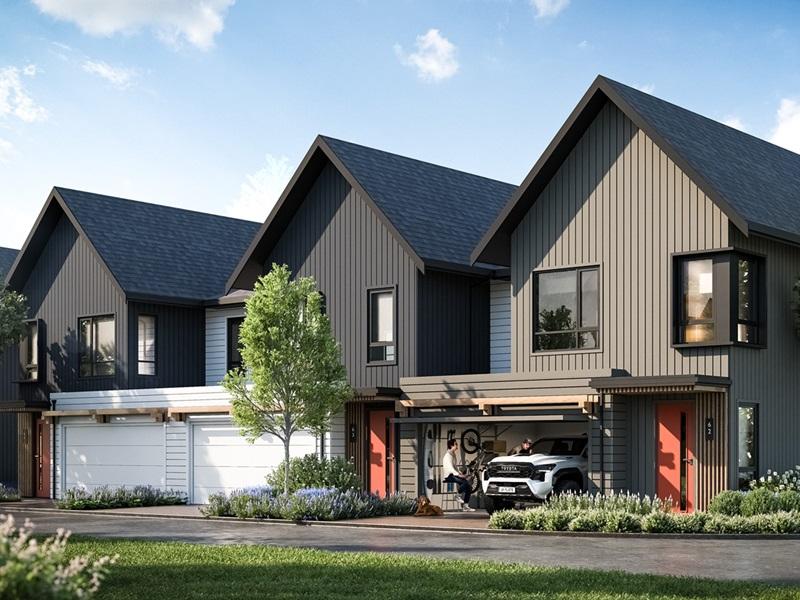
A majority of aspirational homeowners in Canada work multiple jobs to save enough money for their down payments, RBC’s Annual Homeownership Poll reveals.
“It speaks to the concerns we saw from respondents around market conditions, inflation and affordability,” Nick Palucci, RBC’s senior director of home equity finance acquisition and distribution, told RENX Homes.
“This notion of a side hustle, 57 per cent require a part-time job, and we see fluctuations in different provinces, but for the most part it’s pretty consistent.”
Although Canada’s inflation rate is officially 2.9 per cent, prices for essential products remain elevated and are, according to half of survey respondents, hindering their ability to save money.
Pace of saving has slowed for many
Among survey respondents planning to buy a home in the next couple of years, the amount saved in the previous 12 months fell 37 per cent from a year earlier. There was also a dramatic rise in potential buyers who say they are not putting away money toward a down payment on a monthly basis, up to 36 per cent from eight per cent.
Forty-one per cent of potential homebuyers surveyed anticipate saving for a down payment will take up to four years.
Despite the challenges, however, 29 per cent of Canadians who do not own their home said they plan to purchase a residence within the next two years. In Quebec, which has a traditionally high proportion of renters compared to the rest of the country, that number is 27 per cent, an increase of eight per cent from last year's survey.
Palucci said some of that increase in Quebec can be explained by lower housing costs in the province relative to many other parts of the country.
“They’re the least reliant on the bank of mom and dad across the whole country, and I think that speaks to the house prices in Quebec versus nationally,” he said. “You definitely see where affordability and prices are still a concern, but maybe not as much as it is nationally.”
Prices remain high despite soft demand
According to the Building Industry and Land Development Association, the total inventory of new homes in the Greater Toronto Area increased in March to 20,177, of which 16,747 were condos. That is despite recent news reports that dozens of major condo developments have been put on hold for a variety of reasons, from low sales to the high costs of building.
That there’s currently a significant number of condos on the market — which are considered ‘starter homes’ — without any substantive reduction in sticker prices is a consequence of municipal tax regimes, said the head of a provincial construction association.
Conflated with persistently higher inflation and lending rates, he added, a sizeable cohort of homebuyers are feeling the heat.
“People put down payments on places a few years ago when interest rates were a lot lower than they are now — significantly lower,” Richard Lyall, president of the Residential Construction Council of Ontario (RESCON), said of a growing number of preconstruction purchasers. “Now they can’t qualify for mortgages.”
Lyall said some builders are sensitive to the plight of purchasers, but other buyers haven’t been so lucky.
“Sometimes if they can’t close, the unit goes back on the market and a lot of buyers are losing their down payments,” Lyall said, adding that the failure to close on sales contracts has also led to some lawsuits.
Canada’s population grew by over a million people in the 12 months ending July 2023 — which especially exacerbated demand in urban markets where investor-owned condos are relied on help buoy the rental supply. Lyall contended levies imposed on builders by municipalities scuttle the possibility of lower prices.
Lyall contends that affordability woes in Canada’s largest urban area, extending from the Greater Toronto Area southwest to Hamilton, have as much to do with municipal taxes as they do with demand outstripping supply.
Builder incentives for homebuyers
All this has led some homebuilders to seek means to assist homebuyers who are making their first purchases.
For example, Dunpar Homes has incentivized purchasers in the preconstruction segment of the residential market.
The company offers qualified purchasers a five-year fixed mortgage at a rate that, in many cases, undercuts A-channel lenders by half — provided they put a full 20 per cent down.
“We offer the Dunpar mortgage, allowing purchasers to enter a five-year arrangement on a mortgage we underwrite at only 2.99 per cent,” Dunpar sales associate Cortney Cioffi said.
“Dunpar is offering this mortgage because of the sudden rise in mortgage rates over the last couple of years, and this rate will remain in place until rates recede to levels low enough that our 2.99 per cent five-year pact will no longer be necessary.”










